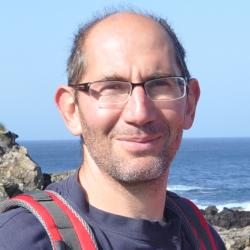Biography
I am the leader of the Higher Predators and Conservation group within the BAS Core Science Ecosystems programme, and an Honorary Professor at the College of Life and Environmental Sciences, University of Exeter. I also work closely with the Agreement on the Conservation of Albatrosses and Petrels (ACAP), including as convenor of the ACAP Populations and Conservation Status working group, and am a member of the Expert Group on Birds and Marine Mammals of the Scientific Committee on Antarctic Research (SCAR). These international agreements develop strategies to improve knowledge of seabirds and other marine taxa, and their conservation.
My research concentrates on the population, physiological and evolutionary ecology of seabirds, particularly albatrosses and petrels, and is supported by NERC core funding to BAS and external grants. I have supervised 15 PhD students (10 successful, five current) and 8 MSc students, and been external examiner for 17 PhD and two MRes theses (for universities in the UK, France, Portugal, Norway, South Africa, New Zealand, Canada, and Australia).
Research
Much of my research is collaborative, involving researchers world-wide, and focuses on topics that include conservation, fisheries interactions, impacts of introduced predators, seabird habitat preferences, at-sea activity patterns, foraging ecology, food web structure, population dynamics, stable isotopes, pollutants, population genetic structure, hormones and behaviour, comparative breeding biology and population trends.
My main field sites are Bird Island (South Georgia), Signy Island (South Orkneys) and Rothera (Adelaide Island). Bird Island holds an unusually high diversity and abundance of seabirds suitable for comparative studies. BAS has carried out long-term population studies since the early 1960s (wandering albatross), 1970s (grey-headed and black-browed albatrosses) and late 1990s/early 2000s (light-mantled albatross, giant petrels and skuas). There have also been numerous dedicated studies, integrating conventional observational techniques with the latest in tracking and logging technology, molecular and stable isotope analysis. An important focus of the current research addresses the declines in albatross and petrel populations as a result of incidental mortality in longline and trawl fisheries.

